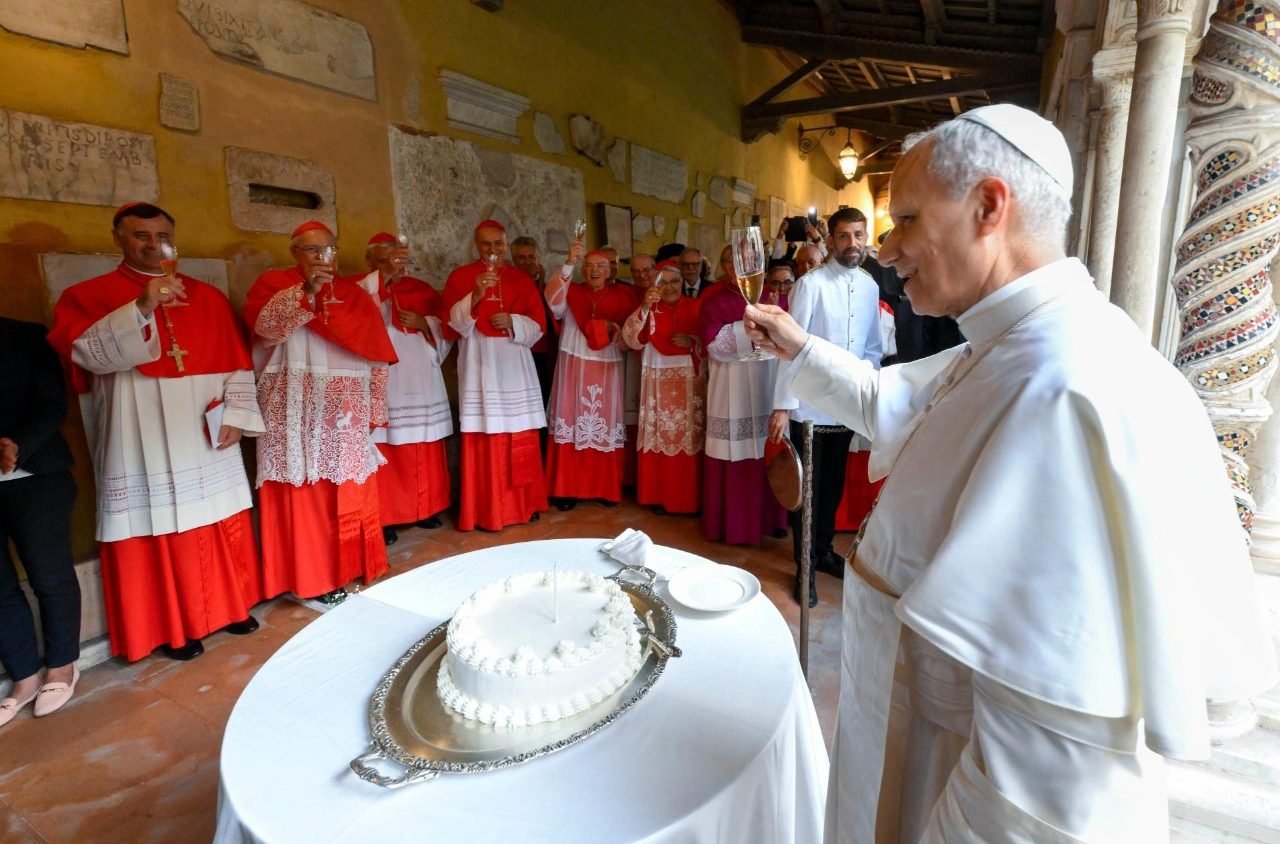At the Commemoration of Martyrs and Witnesses of the Faith in the 21st Century, Pope Leo joins representatives of Christian denominations and communities in remembering the examples of the martyrs, whose hope was based on Christian values rather than violence.
By Kielce Gussie
The papal Basilica of St. Paul Outside-the-Walls became the setting of a special event on the evening of 14 September—the Commemoration of Martyrs and Witnesses of the Faith in the Twenty-first Century. Pope Leo XIV presided over this commemoration together with representatives from various Christian denominations and communities.
The event used the Beatitudes from Matthew’s Gospel to highlight the lives of these martyrs and their witness to Christian values—different members and representatives of the various Churches and communities read the prayers.
Love is stronger than death
In his homily, the Pope highlighted the feast of the Exaltation of the Holy Cross, celebrated on 14 September, and how the image of the cross was transformed from a symbol of torture to “the means of our salvation”, “hope of Christians”, and the “glory of martyrs”.
Extending a welcome to the members of the Orthodox Churches, the Ancient Eastern Churches, the Christian Communities, and the Ecumenical Organizations, the Pope referenced Pope John Paul II’s encyclical Ut Unum Sint, saying the “martyria unto death” is “the truest communion possible with Christ who shed his Blood”.
Even today, Pope Leo said that “hatred seemed to have permeated every aspect of life”. Yet, brave men and women—“servants of the Gospel and martyrs of the faith”—showed that love is stronger than death through their dedication to their faith.
They too carry the cross
Remembering those who have died for the faith, the Pope urged everyone to look to the cross, where Jesus “revealed to us the true face of God, his infinite compassion for humanity”. Jesus, in coming down from the cross, he explained, took upon himself the hatred of the world “to share the lot of all those who are humiliated and oppressed.”
In our modern day, so many of our brothers and sisters continue to carry this cross through their witness to the faith in “difficult situations and hostile contexts: like him, they are persecuted, condemned, and killed.”
These are the men and women of whom Jesus ascribes the Beatitudes. The price they pay for their fidelity to the Gospel, dedication to justice, and unity with those most in need is their lives. Pope Leo pointed out that “according to the world’s standards, they have been defeated.” But the Book of Wisdom says differently: “their hope is full of immortality.”
In the midst of the Jubilee Year of Hope, the Pope encouraged everyone to celebrate these witnesses of the faith. Through their martyrdoms, the Gospel message continues to spread. “It is a hope filled with immortality because, even though they have been killed in body, no one can silence their voice or erase the love they have shown.” Their witness continues as a prophecy of the victory over evil.
An unarmed hope
Pope Leo underlined that the witness of these martyrs is “an unarmed hope” as they chose the power of the Gospel over weapons of force and violence.
He then turned to the example of Sister Dorothy Stang, who had dedicated her life to the “landless in the Amazon”. When her attackers asked for her weapon, she showed them her Bible, calling it her only weapon. The Pope also remembered Fr. Ragheed Ganni—a Chaldean priest from Mosul in Iraq—who refused to fight so as to testify to true Christian values.
Another example was that of Brother Francis Tofi, an Anglican and member of the Melanesian Brotherhood, who surrendered his life for peace in the Solomon Islands. Pope Leo stressed that “to this day the persecution of Christians has not ended; on the contrary, in some parts of the world it has increased.”
We cannot forget
“We cannot and do not want to forget”, the Pope argued, “we want to remember.” Together with our brothers and sisters of other Churches and Christian denominations, the Pope explained, we want to keep their testimonies and stories alive.
He reaffirmed the Catholic Church’s commitment to protecting the memory of these men and women from all Christian traditions—a task that is being carried out by the Dicastery for the Causes of Saints together with the Dicastery for Promoting Christian Unity.
The Pope reiterated a message from the recent Synod: “the ecumenism of blood unites ‘Christians of different backgrounds who together give their lives for faith in Jesus Christ. The witness of their martyrdom is more eloquent than any word: unity comes from the Cross of the Lord.’”
Before closing, Pope Leo recalled a Pakistani child, Abish Masih, who was killed in an attack on the Catholic Church. This child wrote in a notebook, “Making the world a better place.” The Pope urged everyone to let Abish’s dream inspire us to courageously bear witness to the faith and through that, be “leaven for a peaceful and fraternal humanity.”







